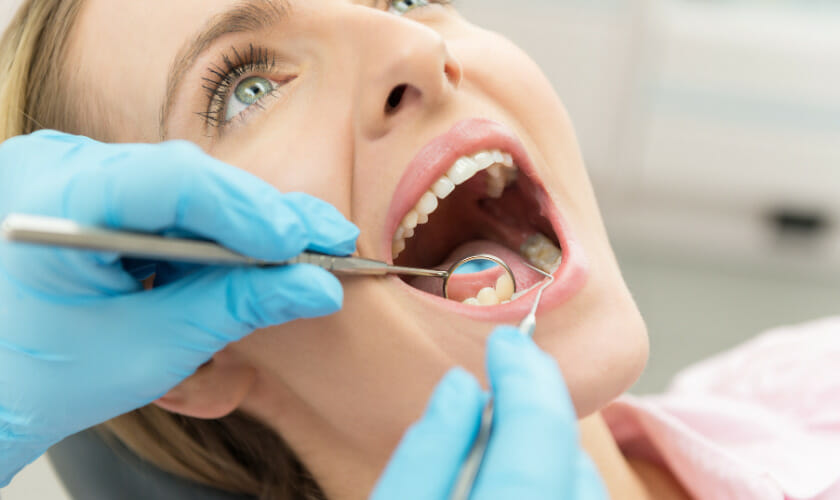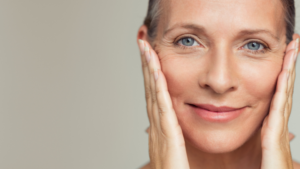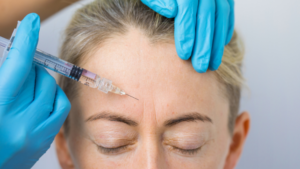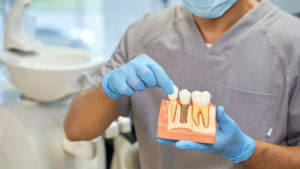I’m going to let you in on a secret…you can go your whole life without ever needing to see the dentist for more than a check-up and a cleaning.
Sounds pretty nice, doesn’t it?
All it requires from you are:
- Doing the basics of oral hygiene well and consistently.
- Making lifestyle choices that promote the health of your teeth.
- Having regular check-ups with your dentist to fix potential problems before their symptoms arise.
- Being proactive about seeing your dentist as soon as the first signs of discomfort are noticed.
Here’s how you do it.
- Good Oral hygiene.
- Brushing.
- Flossing.
- Should I floss before or after brushing my teeth?
- Alternatives to flossing.
- Diet and lifestyle tips that prevent dental problems.
- Age and medication.
- The role of a dentist in preventative dentistry.
- Habits, consistency and the importance of starting young.
Good Oral hygiene.
Brushing.
Brush your teeth twice daily for at least 3 minutes. Using a timer can help you with this.
Be thorough and make sure that every surface of every tooth is covered.
Use fluoridated toothpaste and brush gently with an up and down motion pointing the bristles towards the gum.
Do not scrub hard. It damages enamel and is one of the main causes of tooth sensitivity.
Be consistent with this.
Flossing.
Ahh flossing…the bridesmaid of oral hygiene.
Whereas brushing your teeth twice a day is seen as something that everybody does, we tend to take a slightly more relaxed approach with flossing.
In terms of preventing dental problems, brushing alone cannot get to all the surfaces of your teeth. Flossing is therefore required to clean between your teeth and your gums.
Flossing is as important as brushing, and you need to do it at least once a day.
I think the reason why regular flossing is far less common than brushing is that, due to the dexterity required to floss, we do not get into the habit of flossing from a young age.
However, if you want to prevent cavities between your teeth, gum disease and eventual tooth loss, you need to make flossing a daily habit.
Proper flossing technique easier to show than to explain with words, so here is a video showing it:
A good oral hygienist should show you in person as well to really get the technique right.
Flossing can be fiddly, and takes a little bit of practice to learn how to do it well.
Just remember that, as with brushing, consistency is key.
There’s only one-way to make the habit of daily flossing stick: forcing yourself to do it.
Force yourself to floss daily for the next two weeks it will quickly become second nature, just like brushing.
Should I floss before or after brushing my teeth?
You should floss your teeth before your brush.
This is because flossing removes food debris and (temporarily) opens up gaps between your teeth.
This makes brushing more effective as it is easier to brush between your teeth and clean your gum line.
Alternatives to flossing.
Some people find flossing difficult or unpleasant.
There are some alternatives to flossing that make the process easier. They are:
Interdental brushes.
Interdental brushes are small, thin brushes that you can poke between your teeth and brush your gum line with.
They are most effective when you put a small amount of toothpaste on the bristles.
They are small, portable and can be used anywhere
Interdental brushes are the best way to clean your teeth if you have slightly larger gaps between your teeth.
They are thicker than floss so can clean larger spaces more effectively.
They come in different sizes depending on the size of space between your teeth and an oral hygienist can guide you in finding the best size.

Water flossers.
Water flossers spray a thin jet of water to wash between your teeth.
They can help make flossing less fiddly, so are therefore perfect for younger children and older adults.
Floss picks.
Floss picks are small plastic instruments that hold a taught piece of floss, giving you more manoeuvrability when flossing your teeth.
Again, they make flossing less fiddly and are perfect for younger children or older adults.
As preventative dentistry is all about finding an oral hygiene regimen that suits your individual needs, your dentist should help recommend what flossing devices should work best for you.
It may require a bit of trial and error to get it right.
As far as daily oral hygiene goes, there really is not much more to it than that.
Mouthwash, using fancy toothpastes and electric toothbrushes all can help with getting the job done; but it is simply the mechanical removal of plaque bacteria and food debris that is the goal here.
Diet and lifestyle tips that prevent dental problems.
Diet.
The right diet is important in preventing tooth decay and minimizing your chances of requiring invasive dental work.
You need to be aware of the sugar and acid content of what you eat and drink.
Sugar.
Sugar is what fuels the bacteria in your mouth to create plaque acid.
The main cause of cavities is erosion from plaque acid.
This is why sugar consumption is linked with oral health problems.
A low sugar diet is therefore key to preventing dental problems.
The less sugar the better for your oral health.
I get it, sugar is in most foods and…well…it’s nice.
So, are there any ways that you can maintain the health of your teeth while still enjoying your favourite sweet treats?
The short answer is that no sugar is best.
The longer, and more realistic, answer is that sugar should be eaten in moderation, and that there are a few ways to minimize (though not eliminate) the harm done to your teeth.
These are:
Be mindful of how much sugar is actually in what you eat.
Check the nutritional content on packaging of foods, especially processed foods like cereals and ready meals, crisps, tomato sauce, baked beans etc.
There is more sugar in food than you might think. It is not just the obvious sweet things.
Don’t graze on sugary snacks throughout the day.
Saliva is alkaline and goes some way to neutralizing plaque acid.
It is less effective at doing this if your mouth is repeatedly being exposed to sugar so try to avoid grazing on sugary snacks.
Sugary drinks and boiled sticky sweets also increase the amount of time sugar is in your mouth so avoid those where possible.
As general rule, if you are going to eat sweets then eat it all in one sitting.
Spreading it throughout the day is the worst thing you can do.
Acid.
Acid from food and drinks can erode your teeth.
The main culprits to this type of acid erosion are: fizzy drinks (even fizzy water), some fresh fruits and vegetables and alcohol.
The easiest way to reduce the amount of acidic foods and drinks in your diet is to make 80% of the drinks you consume be water.
Lifestyle.
Smoking, drinking alcohol to excess, and high levels of stress are linked with poorer oral health.
Smoking.
6 effects of smoking on teeth:
- Smoking worsens the circulation of blood to your gums, this makes your gums more prone to gum disease and therefore tooth loss.
- Smoking is the biggest contributor to oral cancer.
- Smoking dries out your mouth. As saliva is alkaline and this increases the harmful effects of plaque acid.
- Smoking stains your teeth and causes bad breath.
- Smoking is linked to lower bone density and osteoporosis. This increases your likelihood of tooth loss.
- Smoking decreases your immunity through your bloodstream and its ability to fight inflammation.
It’s important to note that it is the nicotine in smoke that worsens the circulation of blood to your gums.
Therefore vaping is likely to also increase your risk of gum disease and eventual tooth loss. Some of the vape flavours also contain sugar, and therefore contribute to the likelihood of cavities in the same way that sugary food and drinks do.
In short, smoking can undo a lot of the good work done through diligent oral hygiene and a tooth-friendly diet.
Effects of alcohol on oral health.
Alcohol itself can cause enamel erosion as it is acidic. This is particularly true of spirits or other drinks with a high alcohol percentage.
Wine and beer also contain sugar.
Now I’m not saying that going you have to go teetotal in order to never need a filling, but be mindful about what you drink, and how often.
Effects of stress on oral health.
Stress weakens your immune system, making gum disease more likely.
Stress is the leading cause of tooth grinding, which can wear away tooth enamel making chipped and cracked teeth more likely.
Stress can also make you less mindful of sticking to a healthy diet and good oral hygiene habits.
Stress is the enemy of consistency—and as we know consistency is key to preventing oral health problems.
Managing stress is hard, and given that I’m a dentist, I’ll just leave you with some resources that might be useful for managing stress:
Age and medication.
Certain medications put you at higher risk of certain oral health problems.
You can make adjustments to how you look after your teeth in order to minimize any effects of medication on oral health.
This is particularly true of older people, who are more likely to be on multiple medications.
The most common side effect of medication, as far as oral health is concerned, is a dry mouth. This is the main reason why tooth decay is more common in older adults.
Therefore, you need to be more diligent about your oral health as you get older.
Here are some common medications that affect your oral health, and what you can do to mitigate these effects.
Antibiotics can cause tooth staining, making them yellow or light brown. This is particularly true of Tetracycline and Doxycycline. Tooth whitening may be required to remove these types of stains as the discoloration is within the tooth rather than on its surface.
Antihistamines can cause dry mouth. You can combat this by drinking more water, chewing sugar-free gum, and lowering your intake of sugary and acidic foods.
Antidepressants can make you more likely to grind your teeth. You may require a night appliance to help you stop grinding your teeth while asleep. Some anti-depressants can also cause dry mouth, and as saliva is your natural protection against plaque acid, this can make tooth decay more likely.
Immunosuppressant drugs can put you at higher risk of developing gum disease and oral thrush. Diligent gum care with flossing, floss picks or interdental brushes can help mitigate this.
There are many other medications that are not on this list that can impact your oral health.
It’s therefore also important to tell your dentist about any medications that you’re taking regularly so hygiene and lifestyle habits can be tweaked to accommodate the side effects of these medications.
This brings us nicely to:
The role of a dentist in preventative dentistry.
Preventative dentistry is about eliminating the need for invasive and expensive treatments.
My role, as a dentist, is therefore to monitor your teeth and gums, recommend lifestyle changes based on what I see, and to only recommend extensive treatment when absolutely necessary.
This requires a certain type of relationship with your dentist, based on the following principles:
1) Regular check-ups.
Preventative dentistry works best when you see the dentist at least once a year or more often if your dentist feels you are higher than normal risk.
This allows for oral hygiene, diet, and lifestyle changes to be recommended quickly in order to address any developing problems before more serious treatment is needed.
All dental treatment is aimed at preventing future problems, however, the complexity of treatment needed depends on how far these problems have developed.
Therefore the earlier problems are spotted, the less work is needed.
2) Mutual transparency.
Given that preventative dentistry is about what you do outside of the dental practice, it relies on honesty about habits that affect oral health, both good and bad.
As much as it’s your responsibility to be honest about how you look after your teeth (or not) it’s my responsibility to both advise you in a non-judgemental way, and explain the longer-term consequences of potential damage to your teeth.
The aim for both of us is to minimize the amount of work needed on your teeth.
3) Solving any problems in a minimally invasive way.
Rather than jumping into treatments, preventative dentistry is all about small fixes and monitoring.
Again, as no dental work is guaranteed to be permanent, so less invasive treatments will always be beneficial in the longer term.
An example of this is the use of regular fluoride varnish instead of a filling to protect a slightly eroded tooth
4) The attitude of no problem being too small to justify a dental visit.
Any type of discomfort or pain in the mouth, teeth or gums is a sign of a problem.
Preventative dentistry is all about nipping these problems in the bud.
Therefore, even if you think a problem is minor, and does not affect your life in any way, it is still worth going to see the dentist for it.
I get it, it might seem like a waste of time and money, but avoiding more serious treatments will save you both of these in the long run.
Habits, consistency and the importance of starting young.
Preventative dentistry is all about habits, good oral hygiene, a healthy lifestyle and regular trips to the dentist.
These habits are a lot easier to develop, and are more effective if you start young.
Starting young sets the foundation for a healthy mouth throughout your life.
A dentist should act as a teacher to younger patients to help make this happen.





